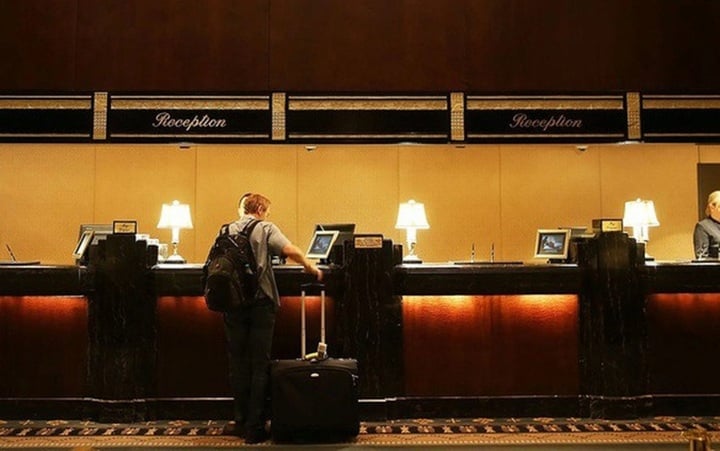When traveling or on business trips, using public Wi-Fi, such as that offered by hotels, is a convenient way to access the internet. However, there are hidden dangers and risks of personal information exposure that you should be aware of to protect yourself.
1. Risk of Information Theft
One of the biggest concerns when using hotel Wi-Fi is the risk of personal information theft. Hackers can set up fake Wi-Fi networks, prompting you to enter login credentials and passwords. Once connected, they can monitor all the data you transmit over that network.
2. Insecure Wi-Fi Networks
Most hotel Wi-Fi access points do not require a password or use weak security measures. This makes them vulnerable to attacks. Hackers can easily access your data if you are transmitting sensitive information, such as credit card details or important email attachments.
 Risks of Connecting to Hotel Wi-Fi
Risks of Connecting to Hotel Wi-Fi
3. Fake Access Points
Fake Wi-Fi networks are a common threat. Hackers can create a fake access point with a name similar to the actual hotel Wi-Fi, causing you to connect to the fake network inadvertently. Once connected, all transmitted data is at risk of being stolen.
4. Malware Risks
Hotel Wi-Fi access points can be a source of malware propagation if security measures are not tightly controlled. Once your device is infected with malware, hackers can easily access your personal information and even take remote control of your device.
5. Risk of Being Tracked
When using public Wi-Fi, your privacy is not guaranteed. Your online activities can be tracked without your knowledge. This is especially dangerous when accessing sensitive accounts, such as banking, social media, or email.
Protecting Your Personal Information When Using Hotel Wi-Fi
Use a VPN: One of the best ways to protect your personal information when using hotel Wi-Fi is to use a virtual private network (VPN). A VPN encrypts your data, safeguarding it from hacker intrusion.
Enable Firewall and Antivirus Software: Always ensure your device has an up-to-date firewall and antivirus software. This helps prevent malware attacks.
Only Access Secure Websites: When using public Wi-Fi, only access websites with trusted prefixes like “https://” to ensure your data is encrypted and more secure.
Disable Auto-Connect: Configure your device to not automatically connect to unknown Wi-Fi networks. This prevents accidental connections to fake Wi-Fi networks.
Log Out of Accounts After Use: After using the internet, make sure to log out of all accounts to prevent unauthorized access and data storage.
By following these precautions, you can minimize the risks associated with using public Wi-Fi and better protect your personal information.
According to VTC News
What is GetNada? Step-by-step guide to creating temporary emails and using GetNada to avoid spam and scams.
To protect personal information and avoid spam emails that can be annoying to users, GetNada is an effective solution for creating disposable email addresses that can be used instantly and efficiently. The following article will guide you on how to use GetNada for temporary email addresses when needed.




































